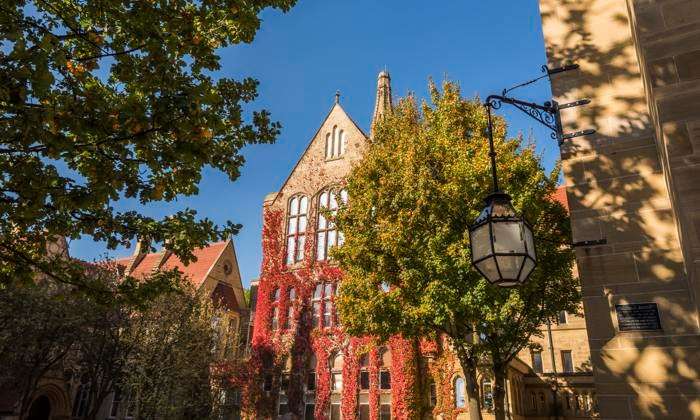Manchester is top in Europe once again in sustainability rankings
05 Dec 2023
The University has been rated top in the UK and Europe, and third in the world, in the independent QS World rankings

The University of Manchester has been rated top in the UK and Europe, and third in the world, in the independent QS World University Sustainability Rankings, echoing its performance in the Times Higher Education Impact league table earlier this year.
The latest news shows how the University’s work across research, teaching, and social responsibility is impacting progress and society around the world and changing people’s lives for the better.
QS, which also publishes the globally influential QS World University Rankings, launched the Sustainability Rankings in 2022. The ranking draws on evidence such as policies and case studies, and sources such as staff and alumni surveys and research data. More than 1,400 universities from 95 countries are assessed on environmental, social and governance (ESG) criteria.
Dr Julian Skyrme, Manchester’s, Director of Social Responsibility, who led the submission to the ranking, said: “This ranking by QS uses a wide range of unique evidence points drawing on our research, teaching, public engagement and university operations. A remarkably similar picture has emerged to that found in the THE Impact Ranking, where we are also top in Europe. This success reflects the impact that thousands of our staff, students, alumni and external partners make to improve our world and should be a source of pride for our whole community.”
At Manchester, many of these efforts are focused on working towards the UN’s 17 Sustainable Development Goals (SDGs).
In research this includes Goal 6: Clean Water and Sanitation. In one example of this, as part of a joint India-UK water quality project, a team of Manchester researchers carried out ground-breaking work on arsenic exposure in India. Arsenic-contaminated groundwater used for drinking and crop irrigation poses a serious health risk, and this research established the extent of exposure and how this toxic metal enters well water.
University research was also highly rated by QS against Goals 1 (No poverty), 2 (Zero hunger), and 3 (Good health & wellbeing).
For evidence for its work around teaching, Manchester submitted examples of its commitment to the SDGs through the University College for Interdisciplinary Learning where students from any degree can take additional short courses to boost their employability or personal development. This can include setting up a business or creating a sustainable future.
On public engagement, the University shared evidence from its museums, galleries and libraries and how it involves local citizens in decision-making through a Civic Panel.
And evidence on University operations included work to decarbonise the campus, supporting good health and wellbeing and a commitment to fostering equality, diversity and inclusion.
Professor Nalin Thakkar, Vice-President for Social Responsibility, said: “People want to work and study at Manchester in part because we are so committed to social responsibility. It means that we have thousands of inspiring people coming up with ideas and making a difference through their work and study every day. The QS ranking shows just how much of an impact all of these actions can have, not just on campus but for people all around the world who we may never meet but who will live better lives as a result of someone’s work here in Manchester.”
There is more information on how The University of Manchester is making progress towards the UN Sustainable Development Goals online.
More information
More information on the methodology and weighting can be found on the QS website.
